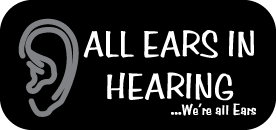- (07) 3841 3764 (Rochedale)
- 0478 282 561 (Shailer Park)
- info@allearsinhearing.com.au
- Mon - Fri: 9:00 - 17:30
Auditory Processing Assessment Springwood
ROCHEDALE SOUTH CLINIC
Phone: 07 3841 3764
Email: info@allearsinhearing.com.au
Adress: 5 Pannikin St, Rochedale South
MON-FRI 9:00AM - 5:00PM
SAT - By appointments only
SHAILER PARK CLINIC
Phone: 0478 282 561
Email: hearing@allearsinhearing.com.au
Adress: 4/3 Mandew St, Shailer Park
MON-FRI 9:00AM - 5:00PM
VISITING SITES
Calamvale and Springfield Lakes
Auditory processing assessment evaluates how your brain recognizes and interprets sounds, measuring key skills like sound localization and auditory memory. It identifies underlying issues to guide personalized interventions that optimize your hearing and communication. Comprehensive testing includes audiometric and speech-in-noise assessments, along with dichotic listening and temporal processing exercises. Early diagnosis enables accommodations and prevents secondary problems, but the subjective nature of tests and complexities involved require a multidisciplinary approach – there's more to explore.
Understanding Auditory Processing Assessment
Auditory processing assessment is a critical tool for understanding an individual's ability to effectively process and interpret auditory information. It evaluates how well your brain recognizes and interprets the sounds you hear, which is essential for language development, communication, and academic performance. The assessment typically involves a series of tests that measure various auditory skills, such as sound localization, auditory discrimination, and auditory memory. By identifying any underlying issues, the assessment can help guide personalized intervention strategies to improve your auditory processing abilities and overall functioning. It's a valuable step in optimizing your hearing and communication skills.
Key Components of Auditory Processing Evaluation
To fully comprehend the auditory processing abilities, the evaluation typically encompasses several key components. Audiometric testing assesses hearing thresholds, while speech recognition measures one's ability to understand spoken language. Dichotic listening tasks evaluate how the brain processes different sounds in each ear simultaneously. Temporal processing tests examine timing and sequencing skills. Additionally, common assessments include frequency and duration pattern tests, gap detection, and binaural integration exercises. These varied components provide a comprehensive understanding of an individual's auditory processing strengths and weaknesses, guiding targeted interventions. Ultimately, this multifaceted evaluation enables informed decisions to support optimal communication and learning.
Diagnostic Tests for Auditory Processing Disorder
What diagnostic tests are used to identify auditory processing disorder? Clinicians typically start with a comprehensive audiological evaluation to rule out hearing loss. They may then administer a battery of tests, including dichotic listening tasks, which assess one's ability to process competing auditory signals. Speech-in-noise tests evaluate how well one can understand speech in the presence of background noise. Temporal processing tests measure one's perception of sound duration, sequence, and patterns. Clinicians may also use electrophysiological assessments like auditory brainstem response to pinpoint the neural mechanisms underlying the disorder. These tests provide insights into the specific deficits contributing to an individual's auditory processing challenges, allowing for targeted interventions.
Benefits of Early Diagnosis
Early diagnosis of auditory processing disorder can be tremendously beneficial. It allows intervention and accommodations to be put in place early, maximizing a child's potential for academic and social success. With proper support, they can develop strategies to overcome their challenges. Early diagnosis enables educators to tailor instruction and provide assistive technologies, empowering the child to thrive. Furthermore, it helps families understand their child's needs and advocate effectively. This early support can prevent secondary issues like low self-esteem, anxiety, and behavioral problems from developing. Ultimately, early diagnosis sets the stage for a child with auditory processing disorder to achieve their goals and reach their full capabilities.
Individuals Who Require Auditory Processing Assessment
Individuals with suspected auditory processing difficulties, or those exhibiting challenges with listening, comprehension, or academic performance, may require an auditory processing assessment. This evaluation can help identify the underlying cause of the difficulties and guide appropriate interventions. Children with a history of ear infections, speech and language delays, or learning disabilities are often candidates for this assessment. Adults who struggle with following conversations, understanding speech in noisy environments, or experience difficulty with tasks requiring auditory processing may also benefit from this evaluation. The assessment can provide valuable insights and inform personalized strategies to support the individual's unique needs.
Interpreting Auditory Processing Assessment Results
The auditory processing assessment results provide a comprehensive understanding of an individual's auditory skills and identify any areas of weakness. These results highlight the specific areas that may require intervention, such as sound localization, auditory discrimination, auditory memory, or auditory attention. By interpreting the assessment findings, clinicians can develop personalized treatment plans to address the identified deficits. This data-driven approach ensures targeted and effective therapy, empowering individuals to overcome their auditory processing challenges. Understanding the assessment results is crucial for implementing appropriate accommodations and strategies to support the individual's academic, social, and everyday functioning.
Challenges and Considerations in Auditory Processing Assessment
Conducting an auditory processing assessment isn't without its challenges. The subjective nature of the tests and the influence of factors like attention, language, and cognition can complicate the interpretation of results. You'll need to consider the individual's developmental stage, cultural background, and any co-existing conditions that may affect their performance. Additionally, there's a lack of standardized diagnostic criteria, which can make it difficult to reach a definitive diagnosis. Despite these hurdles, a comprehensive assessment is crucial to identify strengths, weaknesses, and develop appropriate interventions. With a keen eye and a multidisciplinary approach, you can navigate these complexities and provide meaningful insights into the individual's auditory processing abilities.
DISCLAIMER:
The information on this website is provided for educational purposes only. We do not support, nor recommend any products or treatments without proper hearing diagnostic and proper hearing evaluation. All users must seek professional advice before beginning treatment as well as inform themselves of known side effects/risks associated with said procedure(s).
